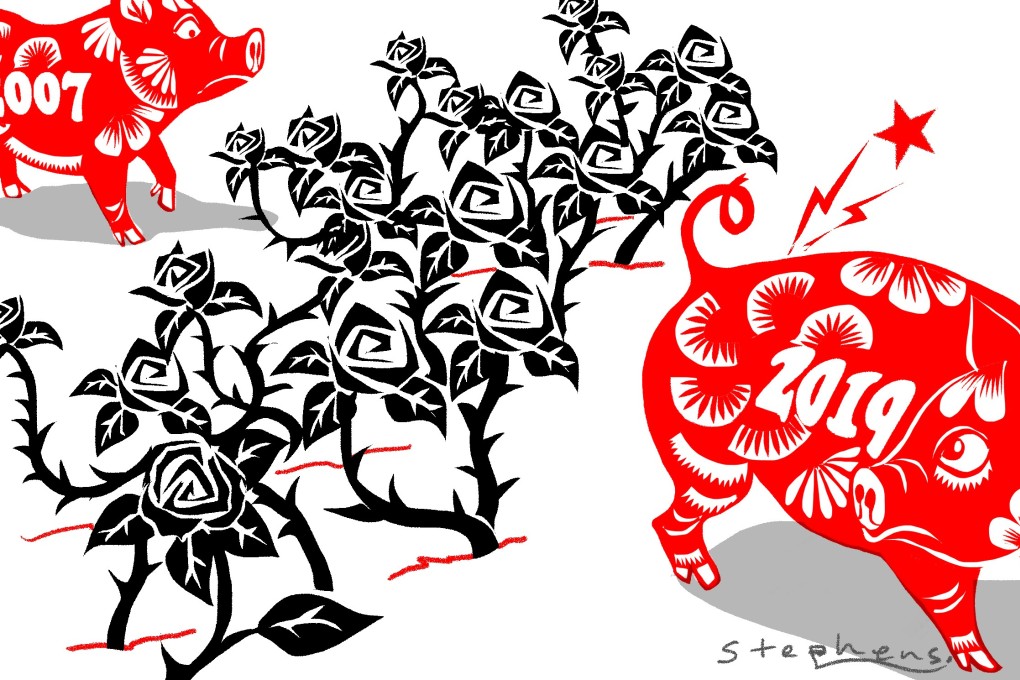Advertisement
Opinion | Year of the Pig throwback: how much has changed in China and Hong Kong since 2007?
- In 2007, Xi Jinping was anointed as China’s future leader and a path to universal suffrage in Hong Kong had opened up. Today, Xi has consolidated power, but China is embroiled in a trade war while Hong Kong’s democracy dreams have been dashed
Reading Time:4 minutes
Why you can trust SCMP

We have just entered the Year of the Pig, an excellent moment to reflect on where China and Hong Kong were 12 years ago in 2007 – the year last dedicated to the same zodiac animal – and their current circumstances.
Advertisement
Back then, Xi Jinping had just become the Politburo Standing Committee’s sixth-ranking member, implying he would succeed Hu Jintao as China’s pre-eminent leader in 2012. We now know that Xi defeated Li Keqiang in a straw vote by around 400 top leaders in June 2007 to determine the next general secretary of the Communist Party. We didn’t know it then, but Xi Jinping’s “new era” was only five years away.
In 2007, China’s annual gross domestic product growth peaked at 14.2 per cent. And while the global financial crisis was around the corner, the government in Beijing was cash rich, having accumulated vast amounts of capital since the 1994 tax reform, and could introduce a massive stimulus package. China was proud of its response and its role in saving the global economy.
On the eve of the Olympics, Beijing was preparing to welcome the world to a more open China. Foreign journalists would be allowed to travel freely and interview whoever they wanted. But the Chinese state’s focus on security would quickly intensify. The riots in Tibet and Xinjiang in 2008 and 2009, respectively, increased the Communist Party’s concerns about threats from the periphery, so, by 2011, China was spending more money on internal security than on national defence.
Sino-American ties were ticking along. US president George W. Bush had stopped referring to China as a “strategic competitor”. As a result of the attack on the World Trade Centre in 2001, the US, accepting China’s position that it faced an existential threat in Xinjiang, recognised the East Turkestan Islamic Movement as a terrorist group. China was pleased.
Advertisement

Advertisement
